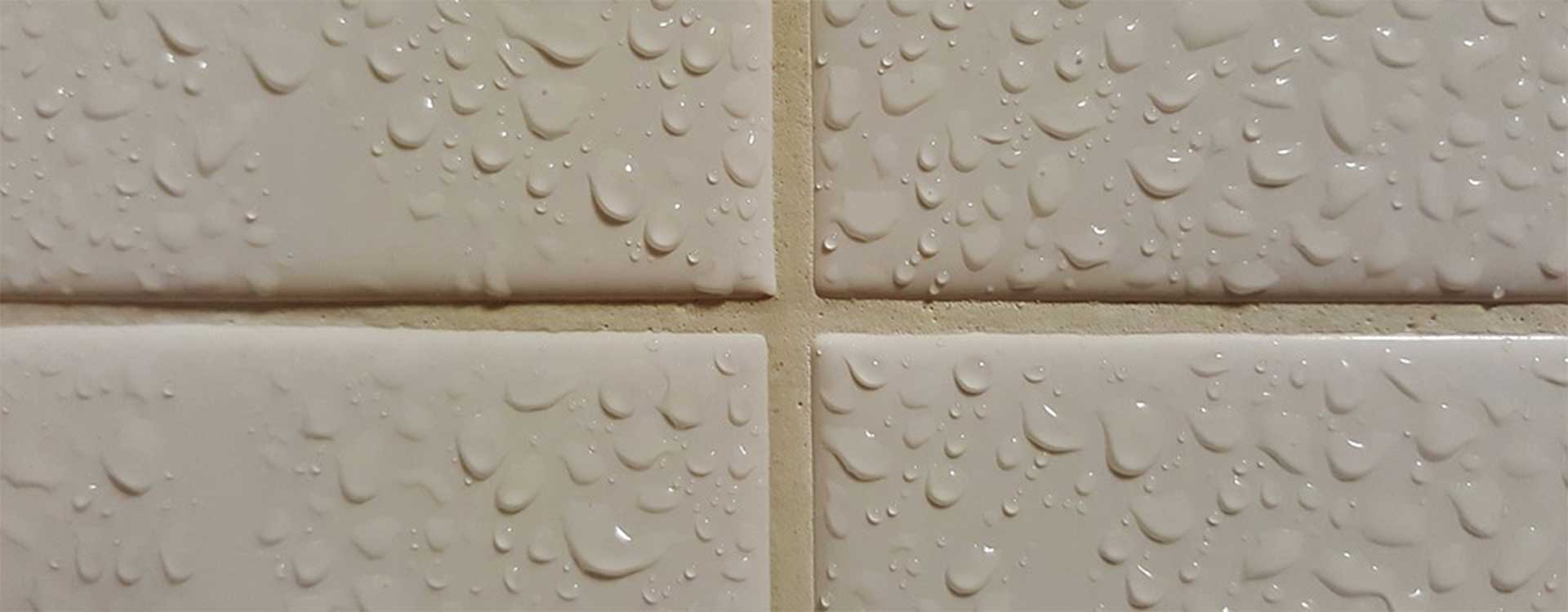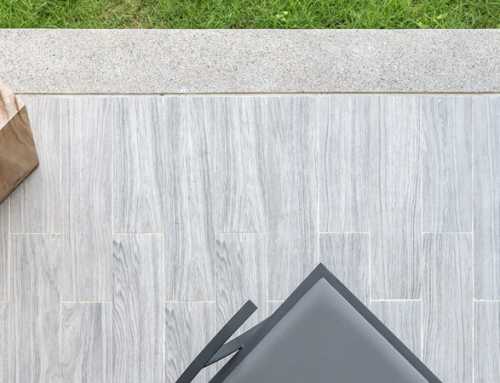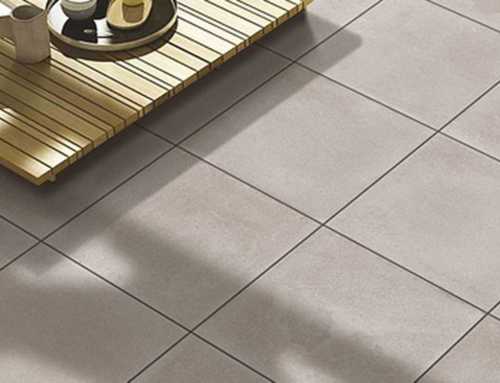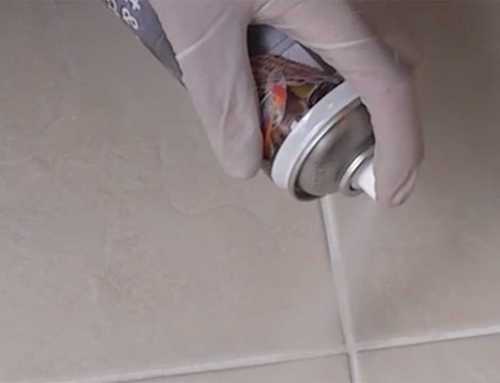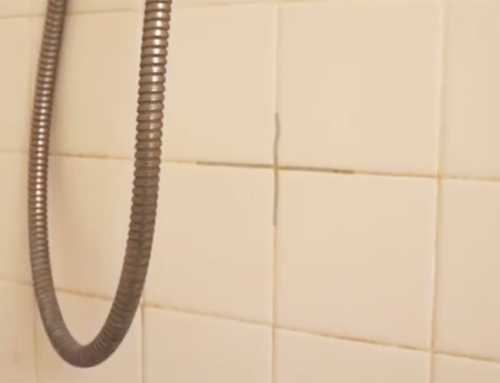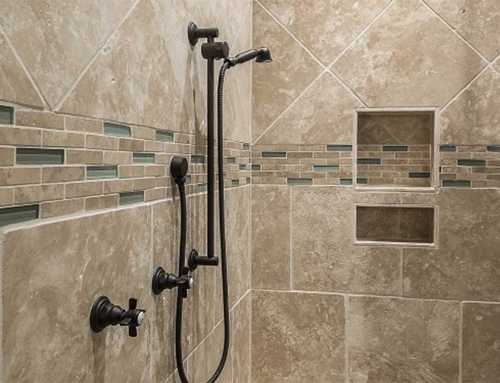How to Seal Grout in a Shower Wall or Floor Tiles
Sealing wall and floor tile grout in your home can be very beneficial. This is particularly true in shower or bathroom areas where moisture, shampoo and soap residues can cause hard to remove staining and contamination.
Should you seal grout in a shower?
Sealing the grout in your shower is a relatively simple process that will prevent moisture from seeping between and under your tiles. Wet grout is a perfect place for dangerous mould and mildew to breed.
As tile grout is usually made up of a mixture of sand, cement and water it is naturally porous and absorbent. Due to this, you need an effective shower grout sealer that will penetrate and protect the grout, stopping mould and mildew forming.
How to seal grout on a shower wall or floor tiles
Below is a step by step process that explains how to seal tile grout in a shower properly by using the best grout sealer for your shower floor and walls. By doing so you can not only help to stop stains from black mould, hair dyes and shampoo but also make daily cleaning and maintenance significantly easier.
In this guide we are going to explain not just the benefits to sealing grout in a shower, but how quick and easy it is to protect and seal your grout in bathroom areas.
Handy Hint: Before you seal the grout on your shower wall and floor tiles, you need to make sure that the grout is thoroughly clean and dry before applying the sealer. If you miss this step you might end up sealing in any dirt or stains. If there are areas of grout that are dirty or stained then use the following product Universeal Grout Cleaner.
With most shower grout sealers, you need to wait for 48 to 72 hours for the grout to cure before applying the sealer. With Universeal’s sealer this isn’t the case. Ours can be applied immediately after grouting shower tiles and walls.
What you will need:
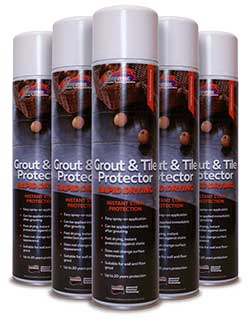 Now you are ready to seal and protect your shower tile grout, choosing the correct product is imperative. Our recommended shower tile grout sealer is Universeal Grout & Tile Protector. It is a very effective high-grade sealer. It comes in a convenient spray aerosol, making application very easy and super quick.
Now you are ready to seal and protect your shower tile grout, choosing the correct product is imperative. Our recommended shower tile grout sealer is Universeal Grout & Tile Protector. It is a very effective high-grade sealer. It comes in a convenient spray aerosol, making application very easy and super quick.
- Universeal’s shower tile grout sealer
- Rubber gloves
- Eye protection
- Vapour mask
- Damp cloth
How to seal tile grout in a shower step by step
1: Work in a safe and well-ventilated area
Before starting the sealing, make sure that the shower or bathroom is well ventilated.
We also recommend that you wear personal protection equipment including gloves, eye protection and suitable vapour mask.
2. Apply the shower grout sealer
Shaking the can well before use, now spray approximately 25 to 40cm from the tile and grout surface.
Apply the product evenly with sweeping side to side, up and down motions to the grouting.
Make sure any overspray is wiped off the surface of any tiles or sanitary wear with a damp cloth as you go along.
Do not allow the sealer to dry on these surfaces and it will make it more difficult to remove.
3. Let the shower tile grout sealer dry for up to 2 hours
Let the grout sealer dry in the shower for one to two hours.
4. Test an area using water droplets and apply second coat
Once fully dry do a test area after application using water droplets. If the water droplets are absorbed within 60 seconds, then apply a second coat repeating the same application process.
5. Let dry for at least 8 hours
Finally let the shower wall or floor grout to dry for a minimum of 8 hours before getting this area wet and using the bathroom again.
Handy Hint: If you have more questions regarding this process or any of the Universeal Sealant products, please contact our sales office 01300 345898.
Related Questions and FAQs
Below we have answered some of the more common questions people ask us when learning how to seal grout in a shower.
We will often get asked, “how often to seal grout in a shower?”, “should you seal grout in a shower”, and more… all of which have been answered below.
Whilst we have an FAQ section and a helpful expert guide on our website, we thought it would be a good idea to cover some of the most important pointers for professional shower tile grout sealing in the quick responses below.
How often should you seal grout in a shower?
Shower grout should be sealed every 12 months at least. However, it really does depend on the wear, tear, mould, dirt, and debris that you see in your bathroom.
If you do choose to wait longer than a year, you might make yourself more work in the future as the cleaning up and preparation process before sealing the shower grout will be harder.
What type of grout sealer to use in a shower?
We recommend that you always use a VOC-compliant and solvent based formula that can penetrate shower tile grout.
Ideally you want a product that not only protects against oil and water-based stains but also lets the grout surface breathe properly.
Some shower grout sealers will yellow over time and even change the appearance of the surface.
Avoid these sealers and choose a solution that conforms to the following specification:
- Easy spray-on application.
- Shower grout sealer spray can be applied immediately after grouting.
- Fast drying, instant protection against stains.
- Does not change surface appearance.
- Suitable for shower wall and floor grout.
- Up to 20 years protection.
What is the best grout sealer for shower floor?
We believe that our Universeal Grout & Tile Protector is the best sealer for a shower floor and wall area. This is also backed up by what our customers have to say – you can read reviews here.
Our Universeal Grout & Tile Protector is a rapid drying solvent based formula designed for deep penetration into grout. It protects against oil and water-based stains while still allowing the surface to breathe and dry.
It is non-yellowing, long lasting and will not change the colour or appearance of the surface. Overspray that does not penetrate the ceramic tile, porcelain, glass, stone or grout will dissipate and can be wiped away with a damp cloth very easily.



